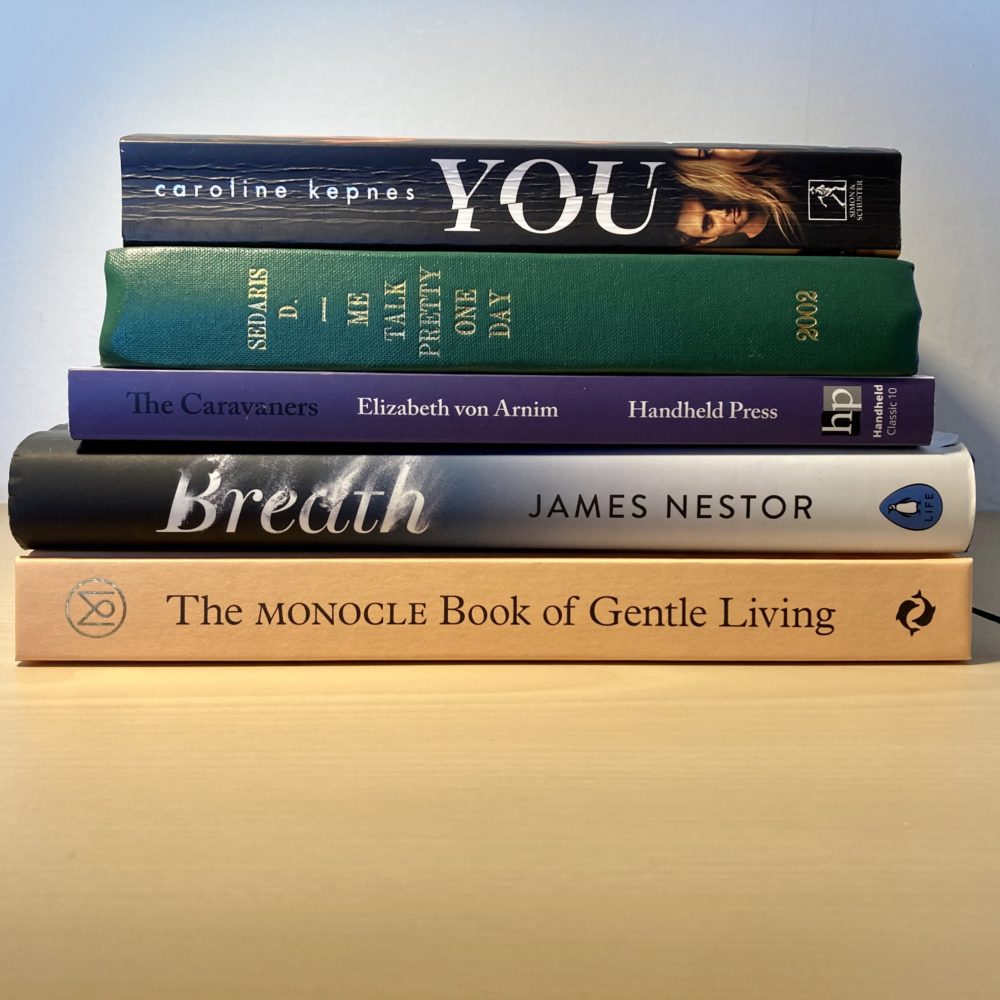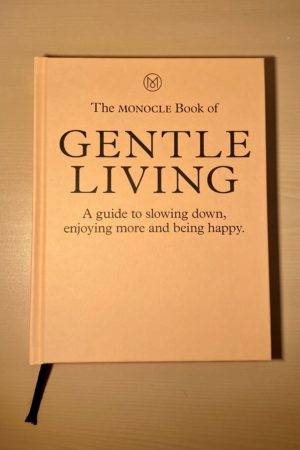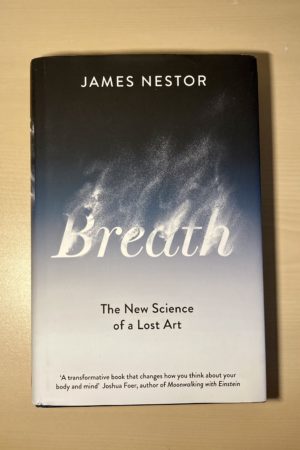What I’ve been reading this month

September has been a very busy month in the world of health protection, so I’ve been reading mostly light stuff to take my mind off things!
Me Talk Pretty One Day by David Sedaris
Another collection of Sedaris’s amusing autobiographical essays, this volume having been first published in 2000. These were easy to read, clever, and very funny: exactly what my brain and soul needed during troubled times!
The first half focused mainly on his youth, the second half more on a period he spent living in France. I found the latter half funnier and more satisfying, but all of it was delightful. Sedaris is someone I enjoy most in small doses, so I tried to limit myself to one essay a day—but with some in this collection being particularly short, that wasn’t always possible.
The essay about his French class desperately trying to explain Easter despite limited vocabulary was a particular highlight.
You by Caroline Kepnes
I picked this up because I fancied a light summer thriller sort of read, and it ticked that box perfectly. It was a first-person narrated story about a bookseller who was also a stalker. It had a wonderfully silly plot and Kepnes perfectly trod the line between thriller and comedy.
I’m not sure I’ll remember anything about this in a fortnight’s time, but it was great fun.
The Monocle Book of Gentle Living
Monocle is a slightly guilty pleasure of mine. I’ve been a fan since the first issue of the magazine, which I came to via Tyler Brûlé, whose Financial Times Fast Lane column (latterly relaunched in a Monocle email newsletter format as Faster Lane) fascinated me for years. For a long time, I believed Tyler to be satirical caricature, and then only grew more interested when I realised he was real.
I’m a Monocle subscriber, but I don’t think I’m the target demographic: I’m never going to spend £435 on a pair of high-end curling boots, nor £750 on a shell jacket, nor £665 on a tweed cardigan, no matter how much they try and push them on readers of their journalism. But I do love reading and listening to their intelligent discussions of UK and world affairs, and I get a little thrill out of knowing that there are people out there who can write hundreds of words of copy on the colour temperature of the lighting on the latest European rolling stock.
So I bought the Monocle Guide to Gentler Living as a bit of COVID escapism, and it was perfect for that. It was essentially a long, themed edition of the magazine, with lavish photography and illustrations, stripped of display-ads and hard-bound. There was very little detail and substance to any of it, but it did sort of come together to make a coherent set of ideas about slowing down in life. (Think: three paragraphs on why train travel is better than flying, followed by one sentence on each of five “best rail journeys”, accompanied by lovely photographs; some blurb on giving up high powered jobs for “the better life”, with accompanying three-paragraph case studies; a section on fashion with a page dedicated to why one should own a t-shirt—any t-shirt—which consists of a stylish photo of a t-shirt and about fifty words of text).
It was light, fluffy, and totally escapist. I took virtually nothing from it, but really enjoyed it nonetheless. So much, in fact, that I’ve picked up another of the Monocle books in a recent sale.
Breath by James Nestor
This was a recently published popular science book about breathing. It was structured around a series of self-experiments conducted by the author. I found this to be a very engaging style, but it did mean that the book was heavy on anecdote and light on proper science. There was also a strong dose of self-help content.
There was a lot of stuff in here that felt like pseudoscientific nonsense. Nevertheless, I found it so engaging that I enjoyed reading it. I even tried some of the described techniques out of curiosity (and got no real benefit).
However, my wife Wendy is a respiratory physician. My top tip to anyone in the same position is to be judicious about sharing passages—there was a fair amount of eye-rolling every time I did, though we did also occasionally descend into fits of giggles, so it was probably worth it.
The Caravaners by Elizabeth von Arnim
This was von Arnim’s 1909 book featuring the ridiculously self-important German Baron Otto Von Ottringel going on a caravanning holiday with his wife Edelgard in England. I was sent it in one of the London Review Book Boxes.
The Baron, who narrated, was quite a character: the holiday was to celebrate what he saw as his silver wedding anniversary. He had been widowered some years before and re-married, but felt that his twenty-five years of marriage ought to be marked nonetheless.
He was astoundingly sexist: “Indeed, the perfect woman does not talk at all. Who wants to hear her? All that we ask of her is that she shall listen intelligently when we want anything. Surely this is not much to ask. Matches, ash-trays, and one’s wife should be, so to speak on every table; and I maintain that the perfect wife copies the conduct of the matches and the ash-trays, and combines being useful with being dumb.”
There was humour in the book derived from the contrast between the Baron’s perception of himself and the evident level of regard in which others held him. There was also historical interest in the portrayal of British/German relations, given the world events just around the corner.
However, I found this a slog. The constant casual sexism and outmoded attitudes, while really the point of the piece, were quite wearing to modern eyes. It felt to me like the same points could have been made in a short story, rather than hammered home in a novel, but of course that’s partly because the satirical points being made are well accepted in modern society, which was not so at the time of publication.
This post was filed under: What I've Been Reading, Caroline Kepnes, David Sedaris, Elizabeth von Arnim, James Nestor, Monocle.




